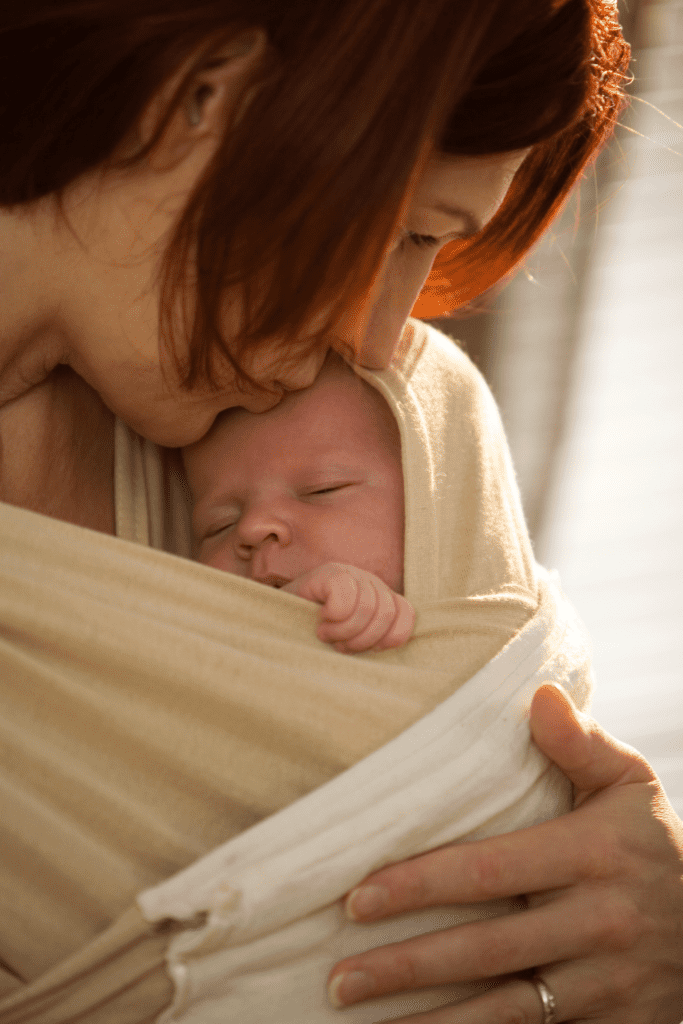
Hearing your baby cry and trying to soothe them without any success can get overwhelming quickly. It can be difficult to figure out exactly why your baby won’t stop screaming. They’re not crying just for the sake of it – your baby is telling you something very specific when the water works start.
So, how can you decipher this baby cry code? It’s all about learning your baby’s cues and recognizing their different types of cries.
If They’re Hungry
If a baby cry sounds low-pitched, rhythmic, and repetitive, they might be hungry.
Remember, crying is actually a late hunger cue – before the noise started, your little one probably did things like a sucking motion, lip-smacking, or putting their fingers into their mouth.
When you notice these types of cues, you can respond before the crying begins.

At the crying stage, your infant has worked themselves up a bit, so might suck in some air with their milk which can result in spit up and gas.
To prevent baby gas, Healthline recommends burping your little one during as well as after feeding, and, “In breastfed infants, [ensure] that their lips are creating a seal on the areola. If you’re using bottles, make sure your baby is putting their lips towards the base of the nipple, not just the tip.”
If They’re Uncomfortable
Trapped air can cause a lot of discomfort for little ones, so they’ll let you know if they need to be burped.
According to Priscilla Dunstan, an Australian opera singer who created Dunstan Baby Language, babies make an “Eh” sound when this happens. As explained by Petit Early Learning Journey, “The distress is caused by a large bubble of air trapped in the chest. The baby responds to this with an ‘Eh’ sound in an attempt to release the trapped air through their mouth.”
This can be accompanied by squirming and kicking their feet.

Another reason for discomfort could be their nappy. Feeling of skin irritation can cause a baby to make a “Heh” sound, according to Dunstan’s work.
A baby’s uncomfortable cry is commonly irregular and mild at first, so make sure to check their diaper when you hear them, before they decide to increase in volume as their discomfort increases.
If They’re Bored
If you stare at the same thing for a long period of time, you’ll get bored, right? Well, so do babies. Infants need to have stimulation and interesting things to look at and grab.
As for the specific boredom cry, What To Expect says, “This cry starts out as coos (as baby tries to get a good interaction going), then turns into fussing (when the attention she’s craving isn’t coming), then builds to bursts of indignant crying (‘Why are you ignoring me?’), alternating with whimpers (‘C’mon, what’s a baby got to do to get a cuddle around here?’).”
When this happens, pick up your little one and take them on a fun adventure to a different room or outside. This is also the perfect opportunity for tummy time with a few fun and engaging toys.

Click here for four tips for tummy time.
Although a newborn can’t really play games, you can still change up their environment. Baby Center suggests, “Give your new baby lots of different things to look at. One simple way to do this is to move his crib or baby seat from one interesting spot to another.”
If They’ve Just Had Enough
Sometimes everything just gets too much for little ones to handle. Too much noise and a lot of experiences all at once can result in your baby trying to hit objects away which can snowball into shrieking.
If your baby is overstimulated, try taking them out of the bright or noisy environment that might be causing the issue. “Try calming him with comforting noises, such as a white noise machine, vacuum cleaner, or whirring fan,” says Parents.

What About Colic?
Colic cries seemingly happen for no apparent reason.
“Episodes of colic usually peak when an infant is about six weeks old and decline significantly after three to four months of age. While the excessive crying will resolve with time, managing colic adds significant stress to caring for your newborn child,” says Mayo Clinic.
To try and soothe a colicky baby, you can use a white noise machine, walk around with them in a baby carrier strapped to your chest (warmth and movement are both winners), and give them a warm bath followed by a massage.
This can all be a bit overwhelming for new parents. Luckily, you don’t have to navigate looking after a newborn alone. To help expectant moms feel more confident and excited about their new addition to the family, I created the free mini course, Prepare For Baby. Register now!




